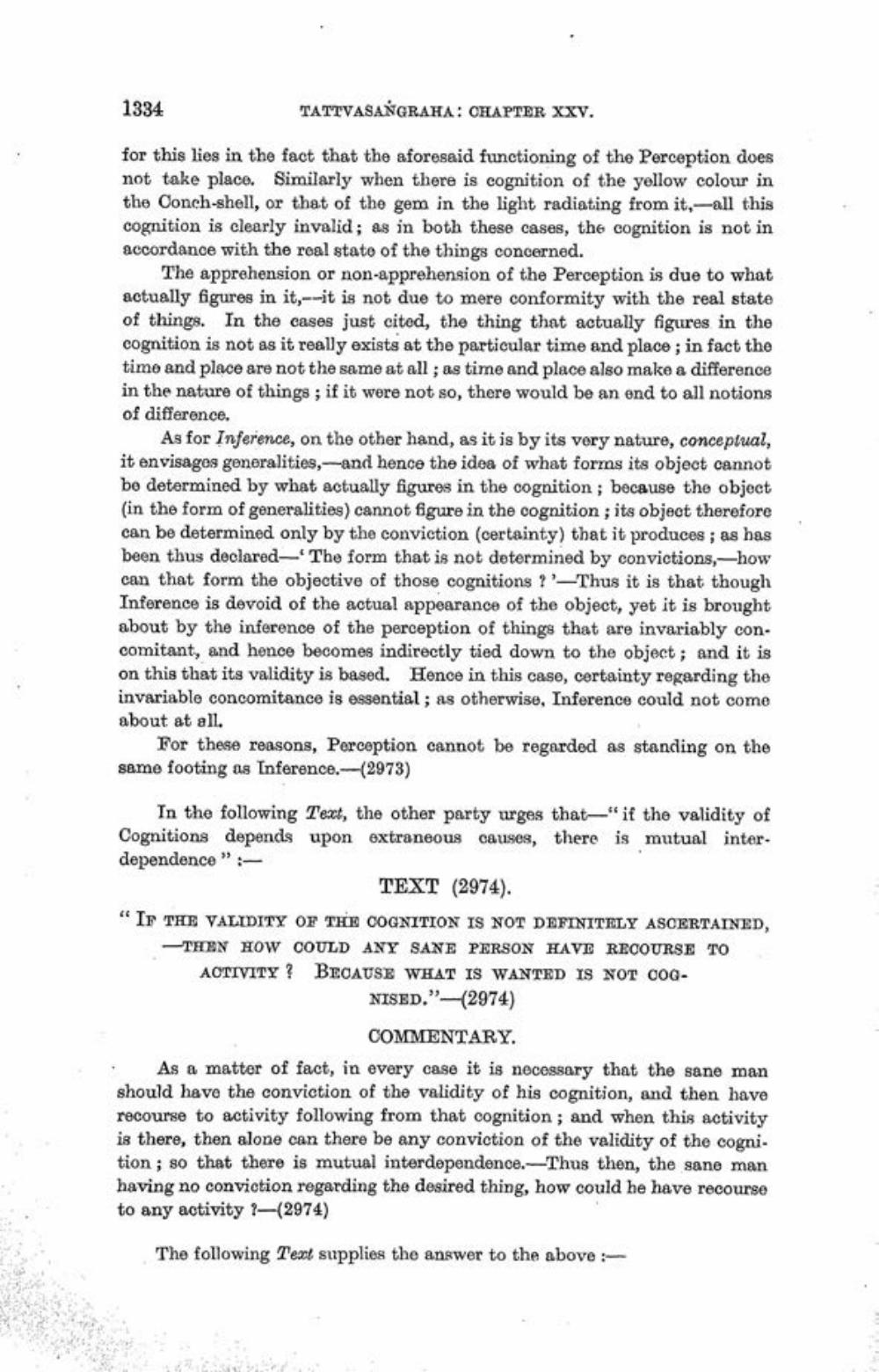________________
1334
TATTVASANGRAHA: CHAPTER XXy.
for this lies in the fact that the aforesaid functioning of the Perception does not take place. Similarly when there is cognition of the yellow colour in the Conch-shell, or that of the gem in the light radiating from it.---all this cognition is clearly invalid; as in both these cases, the cognition is not in accordance with the real state of the things concerned.
The apprehension or non-apprehension of the Perception is due to what actually figures in it --it is not due to mere conformity with the real state of things. In the cases just cited, the thing that actually figures in the cognition is not as it really exists at the particular time and place; in fact the time and place are not the same at all; as time and place also make a difference in the nature of things ; if it were not so, there would be an end to all notions of difference.
As for Inference, on the other hand, as it is by its very nature, conceptual, it envisages generalities,--and hence the idea of what forms its object cannot be determined by what actually figures in the cognition ; because the object (in the form of generalities) cannot figure in the cognition ; its object therefore can be determined only by the conviction (certainty) that it produces; as has been thus declared—'The form that is not determined by convictions,--how can that form the objective of those cognitions ?'-Thus it is that though Inference is devoid of the actual appearance of the object, yet it is brought about by the inference of the perception of things that are invariably con. comitant, and hence becomes indirectly tied down to the object; and it is on this that its validity is based. Hence in this case, certainty regarding the invariable concomitance is essential; as otherwise, Inference could not come about at all.
For these reasons, Perception cannot be regarded as standing on the same footing as Inference.-(2973)
In the following Text, the other party urges that-"if the validity of Cognitions depends upon extraneous causes, there is mutual interdependence":
TEXT (2974).
"IF THE VALIDITY OF THE COGNITION IS NOT DEFINITELY ASCERTAINED,
-THEN HOW COULD ANY SANE PERSON HAVE RECOURSE TO ACTIVITY? BECAUSE WHAT IS WANTED IS NOT COG
NISED.”—(2974)
A.
COMMENTARY. As a matter of fact, in every case it is necessary that the sane man should have the conviction of the validity of his cognition, and then have recourse to activity following from that cognition; and when this activity is there, then alone can there be any conviction of the validity of the cogni. tion; so that there is mutual interdependence. --Thus then, the sane man having no conviction regarding the desired thing, how could he have recourse to any activity ?—(2974)
The following Test supplies the answer to the above




